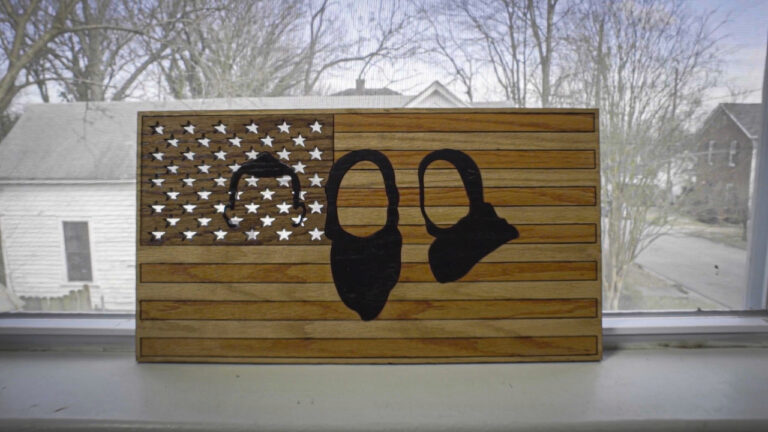
In February 2015, three young Muslim-Americans were killed by a white neighbor in Chapel Hill, North Carolina. The deaths of Deah Barakat, his new bride Yusor Abu-Salha, and her sister Razan Abu-Salha rattled a place known for its diversity, and it took very little time to find the perpetrator. Tarek Albaba’s film 36 Seconds: Portrait of a Hate Crime captures the uniqueness of these individuals whose lives were cut tragically short while simultaneously exploring the importance of naming this triple homicide as a hate crime that is sadly not unique to this instance.
This documentary is not a murder-mystery and there’s almost no doubt about who pulled the trigger. Deah and Yusor’s neighbor Craig Hicks freely confesses to having killed them, allegedly over a parking dispute since he thought they had taken his parking space. When that information gets reported publicly, those closest to the victims and Muslims across America feel that their pain and vulnerability has been distinctly undermined, as if killing three people in cold blood could possibly be explained away by something as insignificant as an argument over parking, especially when the victims happen to be Muslim.
An interesting facet of this film and its exploration of the events following these murders is how, in the immediate aftermath, the classification of the case not being investigated as a hate crime was initially meant as a positive update. Rather than allay fears of repeat offenses or this one man being part of a wider web of people planning to commit crimes against Muslims, that determination instead served to undermine the legitimacy of discrimination and threats against Muslims in America, a reality which only got worse once Donald Trump began his campaign for presidency, promising, among other things, to ban Muslims from coming into America.
The emphasis on a public acknowledgment of an epidemic of hate is a critical one that feels just as unfortunately relevant today. Validating a community’s concern about their own safety and the way others respond to them is crucial, and interviews given by film subjects reference how things actually got worse once Trump was officially running for president than they were a decade and a half earlier following the September 11th attacks. Deah’s sister Suzanne, a doctor, describes how one woman seemed afraid to let her touch her child during a hospital visit, so alarmed by her hijab due to pervasive rhetoric in the country.
Despite its adaptability to many other minority groups within the United States and a general wave of intolerance with deadly consequences, this film remains firmly focused on the people it is memorializing. Interviews with members of the Barakat and Abu-Salha families are heartbreaking, and it’s inspiring to see how they’ve taken their grief and turned into a passion for change. It’s equally disappointing to know that little has actually been accomplished despite their effects, and that so many continue to turn a blind eye to religious-based discrimination despite incredible evidence to demonstrate its pervasiveness.
In his feature film debut, Albaba displays a keen eye for documentary filmmaking, continuously circling back to the frantic moments and hours after the murders when facts were still emerging but the families knew something was very wrong. While reenactments of key moments are helpful, nothing compares to seeing photos of the deceased and testimony from those who knew them best, as well as the disturbing footage of an eerily calm Hicks gladly telling police what he had just done. This film captures a harrowing moment in recent American history, one that should serve both as a tribute to those who were killed and an important warning about a much-needed course correction to anyone watching.
Grade: B+
Check out more of Abe Friedtanzer’s articles.
36 Seconds: Portrait of a Hate Crime is streaming online via DOC NYC through November 26th and is the recipient of the festival’s Subject Matter award.

